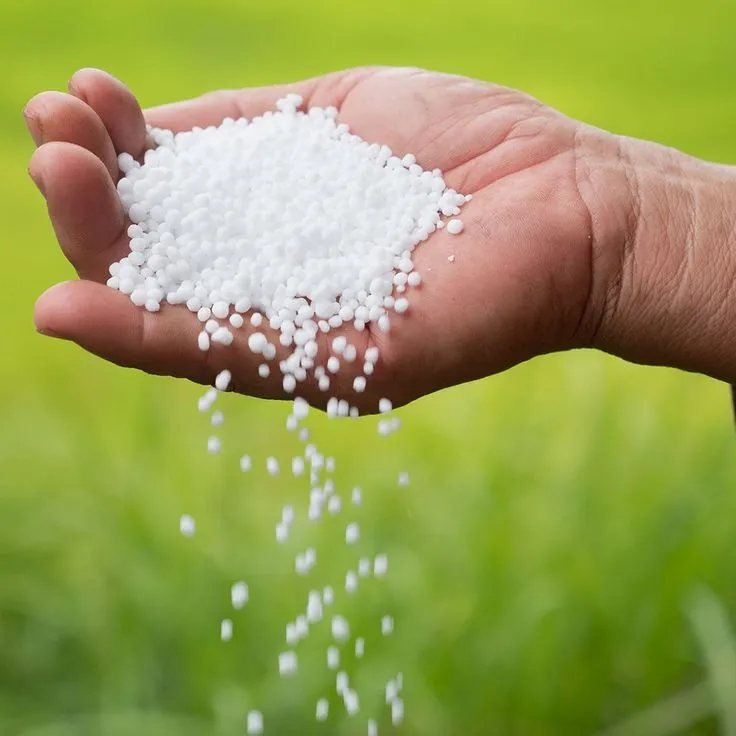Urea fertilizer is one of the most commonly used nitrogen-based fertilizers in agriculture. It plays a crucial role in plant growth, ensuring high crop yields and improved soil fertility. Understanding how to use urea fertilizer efficiently can make a significant difference in maximizing agricultural productivity.
What is Urea Fertilizer?
Urea fertilizer (CO(NH2)2) is a highly concentrated nitrogen fertilizer containing about 46% nitrogen. It is a synthetic organic compound that provides essential nitrogen to plants, promoting leaf growth and overall plant health. Since nitrogen is a vital nutrient for plants, urea fertilizer has become an indispensable part of modern farming.
Benefits of Urea Fertilizer
- High Nitrogen Content: Urea fertilizer is the richest source of nitrogen, making it an effective growth booster.
- Cost-Effective: It is one of the most affordable fertilizers available, making it accessible to farmers worldwide.
- Easy Storage and Handling: Urea fertilizer is non-toxic and has a long shelf life if stored properly.
- Versatile Application: Can be applied to a variety of crops and soil types.
- Enhances Soil Fertility: Regular application helps improve soil nitrogen levels and supports sustainable farming.
How Urea Fertilizer Works in Plants
Urea fertilizer provides nitrogen, which is essential for:
- Protein synthesis: Helps in the formation of amino acids and proteins required for plant growth.
- Chlorophyll production: Essential for photosynthesis, which fuels plant energy.
- Enzyme activation: Supports various biochemical reactions in plants.
- Cell division and growth: Encourages leaf and stem development.
When to Apply Urea Fertilizer for Maximum Benefits?
Applying urea fertilizer at the right time is crucial to ensure maximum nitrogen absorption and minimal wastage. The best time to apply urea fertilizer includes:
- Before planting: Helps in initial soil enrichment.
- During early growth stages: Supports vigorous vegetative development.
- Before flowering and fruiting: Ensures adequate nitrogen availability for yield improvement.
- Post-harvest application: Helps replenish soil nutrients.
Best Methods for Applying Urea Fertilizer
- Broadcasting: Spreading urea fertilizer evenly over the field before or after planting.
- Top Dressing: Applying urea fertilizer to growing crops to boost nitrogen levels.
- Foliar Spray: Mixing urea fertilizer with water and spraying directly on leaves for quick absorption.
- Drip Irrigation: Dissolving urea in water and delivering it through irrigation systems.
Factors Affecting Urea Fertilizer Efficiency
- Soil Moisture: Applying urea fertilizer on dry soil can lead to nitrogen loss.
- Temperature: High temperatures increase volatilization, reducing efficiency.
- Soil pH: Alkaline soils can cause nitrogen loss due to ammonia volatilization.
- Method of Application: Proper incorporation of urea fertilizer into the soil prevents nitrogen loss.
- Crop Type: Different crops require specific urea fertilizer application rates.
Common Mistakes to Avoid When Using Urea Fertilizer
- Applying on Dry Soil: Can lead to nitrogen volatilization.
- Over-application: Excess nitrogen can cause plant toxicity and environmental pollution.
- Surface Application Without Incorporation: Leads to loss of nitrogen through volatilization.
- Application Near Plant Stem: Can damage seedlings and roots.
- Ignoring Weather Conditions: Rain can wash away urea fertilizer before absorption.
Environmental Impact of Urea Fertilizer
While urea fertilizer is beneficial for crop growth, excessive use can lead to environmental issues such as:
- Nitrogen runoff: Leads to water pollution and algae blooms.
- Soil Acidification: Continuous use lowers soil pH.
- Greenhouse Gas Emissions: Contributes to ammonia and nitrous oxide emissions.
Sustainable Practices for Using Urea Fertilizer
- Using slow-release urea fertilizer: Reduces nitrogen loss.
- Applying urea fertilizer with organic matter: Enhances soil health.
- Utilizing split application methods: Minimizes waste and improves efficiency.
- Incorporating urea fertilizer into soil: Prevents volatilization.
- Practicing crop rotation: Improves soil nutrient balance.
Urea fertilizer is an essential tool in modern agriculture, providing the nitrogen needed for healthy crop growth. However, to maximize its benefits, farmers must follow proper application techniques, consider environmental impact, and implement sustainable practices. By using urea fertilizer effectively, crop yields can be improved while minimizing potential drawbacks.
FAQs
1. What crops benefit most from urea fertilizer?
Urea fertilizer is widely used for wheat, rice, maize, sugarcane, and vegetable crops.
2. Can urea fertilizer be mixed with other fertilizers?
Yes, but avoid mixing with ammonium-based fertilizers as it may lead to nitrogen loss.
3. How long does urea fertilizer last in the soil?
Urea fertilizer releases nitrogen within 2-3 weeks, depending on soil conditions.
4. What is the best way to store urea fertilizer?
Store in a cool, dry place away from moisture to prevent clumping.
5. Does urea fertilizer affect soil pH?
Yes, continuous use can lower soil pH, making it more acidic.
6. Can I use urea fertilizer for indoor plants?
Yes, but use in diluted form to prevent over-fertilization.
7. Is urea fertilizer safe for the environment?
When used responsibly, it is safe, but excessive use can lead to pollution.
8. Why does urea fertilizer need water after application?
Water helps dissolve and transport nitrogen into the soil.
9. Can I use urea fertilizer in organic farming?
No, synthetic urea fertilizer is not approved for organic farming.
10. How much urea fertilizer should I apply per acre?
Application rates vary by crop, but typically range between 50-200 kg per acre.




